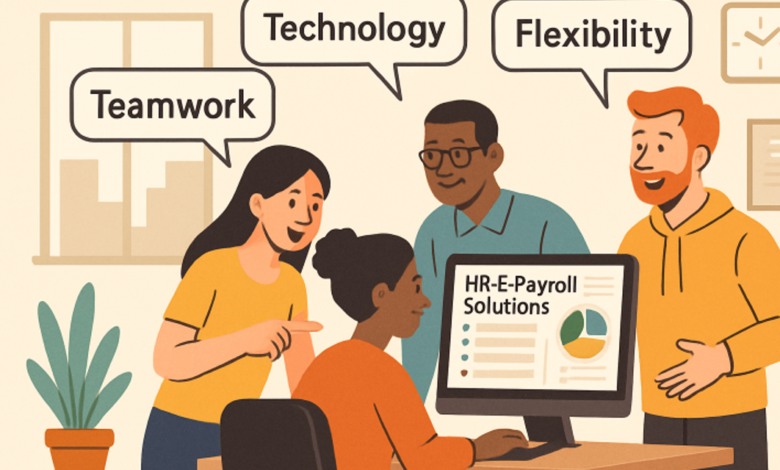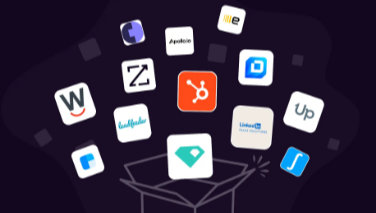The Flexibility Factor: Addressing Myths Surrounding Small Business Payroll and HR Solutions

The Landscape of Small Business Payroll and HR Solutions
The business landscape for small companies is evolving rapidly, putting tremendous pressure on payroll and HR processes to keep up. Increased competition, the rise of remote work, and ever-changing regulations require small businesses to manage their workforces with greater agility than ever before. Payroll and human resources, once viewed as routine back-office functions, have become vital to ensuring organizational resilience and compliance.
Yet, many small businesses struggle to strike a balance between streamlined operations and the need for personalization. Digital transformation in HR is accelerating, with more than 70% of small businesses now utilizing digital HR solutions to manage payroll, benefits, and compliance tasks. Solutions such as ADP’s products are flexible to meet small business needs, helping to dispel the myth that advanced, customizable platforms are exclusive to large enterprises.
The move to digital HR also addresses unique challenges faced by small companies, including limited HR staff, tighter budgets, and the need to remain nimble. Modern providers offer systems with flexible features that match the dynamic needs of growing organizations, from streamlined onboarding to automated tax calculations.
However, misconceptions still persist. Many small business owners hesitate to embrace new payroll and HR solutions, fearing that flexibility means sacrificing security or that transitioning to a modern provider will be complex and disruptive. Understanding the facts is the first step toward leveraging reliable, scalable HR solutions.
Common Myths About Payroll and HR Flexibility
One of the most widespread myths is that payroll and HR tools are built on a “one-size-fits-all” model, with little room for customization. In reality, robust platforms enable highly tailored settings, allowing businesses to select the features and modules most relevant to their operations.
Security and compliance doubts form another barrier. Business owners often associate cloud-based solutions with increased data exposure, when in fact, industry-leading platforms employ advanced encryption, rigorous access controls, and continuous oversight to safeguard sensitive information.
Finally, the perception that switching payroll and HR providers is inevitably complicated keeps many businesses tethered to outdated systems. A smooth transition is possible—and often results in immediate productivity and compliance gains—when partnering with experienced providers.
The Reality: Tailored Approaches for Every Business
Flexible payroll and HR providers dispel the “cookie-cutter” myth by offering configurable platforms that grow alongside the business. Whether managing rapid hiring surges, seasonal changes, or compliance requirements for multiple locations, adaptable platforms ensure business needs are met in real-time.
For instance, a small retailer with both part-time and full-time employees can deploy customized pay rules, benefits administration, and compliance dashboards, all consolidated in a single solution. As the business expands, feature modules and user roles can be added seamlessly—without the need for extensive re-implementation.
The benefits of scalable HR solutions extend beyond convenience. They deliver cost-efficiency, reduce manual errors, and support better decision-making with real-time analytics, making them indispensable for high-growth organizations.
See also: AI Story Writer: Creating Imaginative Stories with the Help of Technology
The Role of Technology in Modern Payroll and HR Services
The shift to cloud-based HR and payroll platforms represents a significant technological milestone. Cloud technology ensures secure, remote access to HR data from any device, supporting both remote workforces and multi-location operations. Automated workflows now handle tedious tasks—such as tax filing and direct deposit—minimizing administrative load and human error.
Automation not only accelerates payroll processing but also guarantees accuracy and compliance. Mobile access has become a non-negotiable feature, empowering business leaders and employees with on-the-go information about payroll, benefits, time-off, and more.
Addressing Security Concerns Head-On
Protecting payroll and HR data is crucial for both small businesses and their employees. Data breaches and compliance lapses can have severe consequences, ranging from financial loss to reputational damage and regulatory penalties. That’s why data security must be foundational to any digital HR solution. Best practices include utilizing platforms that employ end-to-end encryption, multi-factor authentication, and role-based permissions. Regular security audits and employee training also play a vital role in mitigating risks.
Streamlining Transitions: Switching Payroll and HR Providers
The thought of switching payroll or HR providers can be daunting, but with a well-defined process, transitions can be executed with minimal disruption. The key steps include reviewing current processes, defining essential requirements, and collaborating with the new provider for a structured migration plan. Clear timelines, training, and communication ensure a smooth changeover for staff and administrators.
To minimize operational impact, choose a partner with migration expertise who provides hands-on support during data transfer and system testing. Interviewing potential providers is also critical—ask about their data security certifications, onboarding processes, scalability options, and customer support availability.
What Small Businesses Should Look for in Payroll and HR Solutions
Selecting the ideal payroll and HR solution means prioritizing features that support business growth, regulatory compliance, and employee satisfaction. Seek out platforms with robust reporting tools, customizable compliance alerts, and integrated employee self-service portals.
Ongoing support and accessible training resources can make the difference between a successful rollout and a frustrating implementation. Ensure that your provider offers timely customer service, comprehensive onboarding, and educational materials tailored to the specific needs of small businesses.
Use the following checklist to evaluate candidates:
- Flexible pricing and feature tiers
- Data security certifications
- Real-time compliance updates
- Mobile accessibility
- Customizable reporting and role permissions
The Long-Term Value of Flexible Payroll and HR Services
Adopting a flexible, cloud-based payroll and HR solution pays dividends over time. Businesses gain efficiency, unlock cost savings, and enhance their readiness for change—whether driven by growth, regulatory changes, or market shifts. Scalable systems ensure that staffing, payroll, and compliance remain stress-free, freeing teams to focus on strategic initiatives and employee engagement. Informed decision-making involves moving beyond persistent myths and embracing platforms that truly align with the realities of small businesses. By selecting the right partner and leveraging modern technology, small businesses can set the stage for lasting success, resilience, and a satisfied workforce.




